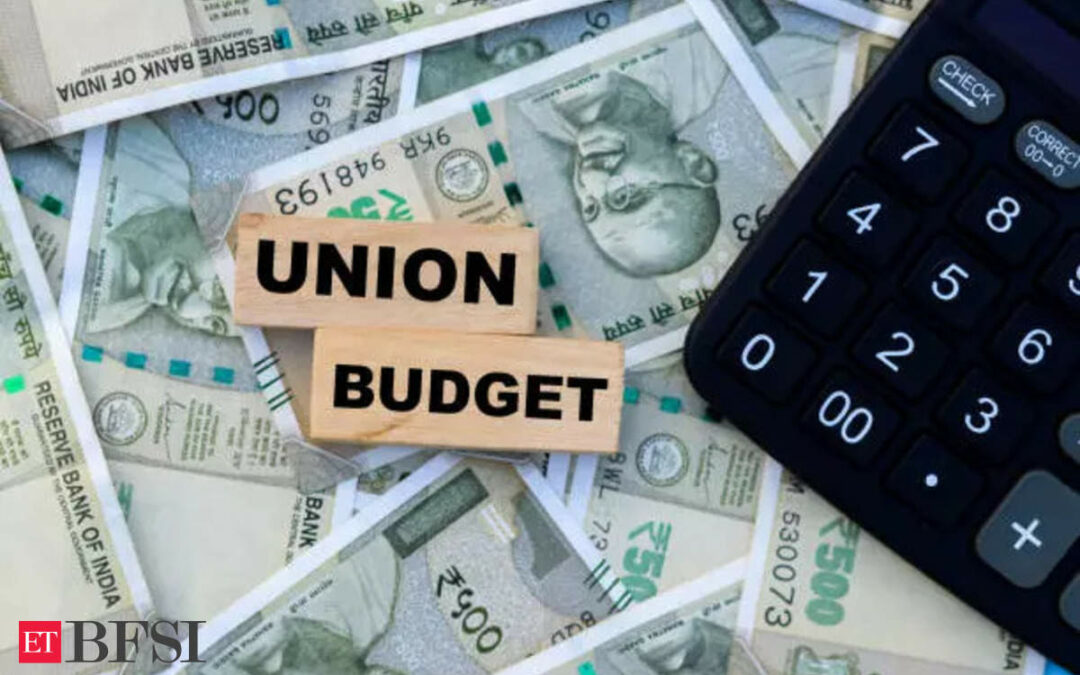Nirmala Sitharaman, Union Finance Minister of India delivered a populist Budget on February 01, 2023, keeping all sectors in mind. NBFC leaders believe that it is a capex-heavy budget with an announced 33% increase in capex.
They also believe that the income tax benefit will boost the purchasing power for middle-class consumers and the revamped credit-guarantee scheme will inject the right booster to the sector. Here’s what the leaders said :
Umesh Revankar, Executive Vice Chairman, Shriram Finance
The union budget 2023-24 is a growth oriented budget and the Finance Minister has checked all the boxes – from consumption to capex to spending to middle class to industry. The income tax benefits announced will boost purchasing power for middle-class consumers. It’s a capex-heavy budget, with an announced 33% increase in capex, which will boost infrastructure, logistics and the transportation business.
The government’s focus on Ease of doing business and the expanded corpus for the credit guarantee will mean MSMEs have a lot to gain from this budget. I believe the announcements made will trigger a pick-up in credit off take for small enterprises, the consumption-driven 2w business and lending to transportation.
George Alexander Muthoot, MD, Muthoot Finance
The Budget 2023 has touched upon all the right chords of the economy, and it will go a long way to boost capital expenditure, infrastructure, housing, along with consumption. The capex expenditure outlay of Rs 10 lakh crore will pave the way to boost economic growth, along with job creation. The enhanced outlay by 66% to Rs. 79,000 crore under the PM Awaz Yojna will boost India’s housing sector, especially in the rural and semi-urban areas. FM’s focus on sustainable cities, creating infrastructure in Tier 2 and Tier 3 cities and Fifty additional airports, heliports, water aerodromes will further boost rural connectivity thereby supporting regional economy.
The Government revamped the ECLGS scheme via the infusion of Rs 9000 crores in the corpus. This will enable collateral for Rs 2 lakh crore loans to the small and medium-sized businesses. Further, 95% of the forfeited amount relating to bid or performance security will be returned to the MSMEs by the government and other undertakings. We also believe that the reforms announced with respect to the growth and development of the agricultural sector, animal husbandry and fisheries will further boost these sectors and support the economy. All these measures will positively enhance the scope of Gold-loan NBFCs like us, which are catering to the underbanked sectors of the society.Shachindra Nath, Vice Chairman and Managing Director, U GRO Capital
The demand of NBFCs from the finance minister was to advance hassle-free credit access and the government has given a much-needed boost to the MSME sector. An allocation of Rs. 9000 crore for the credit guarantee revamp scheme starting April 1, 2023 will give a big relief to MSMEs in the current inflationary conditions.
Presumptive taxation for micro-enterprises with a turnover of Rs. 2 crores, unified filing process, entity-based Digi lockers, and formation of National Financial Information Registry will enable better underwriting of credit to MSMEs. The government has provided the financial sector much-needed momentum, however an active liquidity support system for NBFCs still remains a request.
V P Nandakumar, Managing Director & CEO, Manappuram Finance Ltd
The key announcements around the MSME sector are likely to help the self-employed and small businesses. High focus on firming up digital infrastructure and capital expenditure will have a snowballing effect on employment generation and new business opportunities. Also, the Budget has given freedom of choice to the salaried class and professionals by making the new tax-regime as the default and increasing the taxable slab above Rs 7 lakh, and proposing to reduce the highest surcharge rate from 37% to 25% under the new tax regime.
In my view, these measures will go a long way in sustaining the `India growth story’ by increasing the momentum in private consumption, which incidentally contributes to approximately 60% of the GDP and its growth, by ringing in fresh demand in the economy.
Mr. Rajesh Sharma, Managing Director, Capri Global Capital Ltd
In the backdrop of a slowing global economy, budget’s strong emphasis on capital expenditure as well as social sector spending seeks to strengthen foundations for growth continuity over medium term without ignoring short term social welfare needs. The collateral-free credit limit under the revamped credit-guarantee scheme for MSMEs should inject the right booster shot for a sector that has begun to emerge very strongly after the pandemic.
Overall budget estimates are pragmatic and based on reasonable assumptions of nominal GDP growth. It has once again provided a good anchor to all stakeholders for the year ahead. The likelihood of outperforming the estimates seems higher. The budget has sounded a positive note for the economy to guide itself over the next 25 years on the path to becoming a developed nation.
Rajiv Sabharwal, Managing Director & CEO, Tata Capital
The Capex increase of 33% and a capital outlay of INR 2.40 lakh crore for railways is a bold move to create jobs and improve the infrastructure development in the country. The overall quality of expenditure outlay provides a strong guard against global headwinds and will create impetus for private investments. This will also offer a vast scope for domestic consumption.
Strong agricultural credit outlay, support measures, ease of doing business, and digitization drive across various sectors will improve multiple clusters within the economy.
Abhay Bhutada, MD, Poonawalla Fincorp
The 2023-2024 Union Budget presented by FM Nirmala Sitharaman showcases the government’s commitment to putting people first and uplifting the nation’s financial status. With a focus on ‘janbhagidari’ through ‘sabka saath, sabka prayaas’ and seven pillars, including green growth, youthpower, and infrastructure investment, this budget sets the foundation for a technology-driven and knowledge-based economy. The new tax slabs, with a reduced maximum marginal rate of 39% and an income rebate limit of Rs 7 lakh, empowers the middle class with more spending power, thereby elevating the country’s economy.
The government’s continued support and commitment to the MSME sector are commendable, as it is crucial in driving the nation’s economic growth. The improved credit guarantee scheme, along with reducing compliances will significantly help alleviate stress in the MSME sector. The digitization and expanded Digilocker services, along with The National Financial Information Registry, will enhance transparency in financial security and the sector at large. The budget paves the way for a brighter future for the citizens of India. We look forward to seeing its successful implementation and playing our role in helping the nation become a global leader in the financial industry.
Rashmi Saluja, Executive Chairperson, Religare Enterprises
MSMEs are growth engines of our economy. The Finance Minister has done a fantastic job in proposing the revamp of the existing credit guarantee schemes for MSMEs through a fresh allocation of Rs9,000 crore will enable relief for smaller entrepreneurs. It will reduce the cost of credit & enable further flow of credit into this stressed sector.
The ‘Vivad Se Vishwas’ plan for MSMEs will provide much-needed relief. Also, a reduction in compliance and relaxation of regulatory provisions is a welcome move from ease of doing business perspective. There are many such measures proposed in the Union Budget that will provide fuel to the MSME segment – the potential engine of growth for India’s economy.











